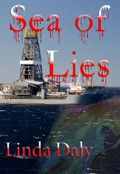Here's The Remnants from writer/director John August…this one cost $25,000 to produce.
#1 New York Times Bestselling Author & TV Producer
Here's The Remnants from writer/director John August…this one cost $25,000 to produce.
Author Bill Crider reviews MR. MONK AND THE TWO ASSISTANTS on his blog today. He says, in part:
As I’ve said before (here and here), I’ve never seen an episode of Monk. Yet I have a great time reading Lee Goldberg’s novels based on the series (and I’m not even reading them in the order of their publication).
I don’t think a book in this series will ever get an Edgar nomination. Why? Maybe it’s greatest drawback is that it’s a tie-in. Tie-ins don’t get a lot of respect. Too bad, because people who don’t read them often miss a real treat. Also, there’s not a lot of heavy-duty angst.
The lack of recognition for tie-in books is why Max Allan Collins and I established the International Association of Media Tie-in Writers (aka IAMTW or I Am a Tie-in Writer) to raise awareness of tie-in books and their writers. The organization is now three years old and boasts over 100 members. We also established the Scribe Awards, honoring excellence in tie-in writing.

MediaBistro is glad you can watch classic episodes of THE PRISONER for free online at the AMC website...but what they would really like to see is a reissue of the 1969 tie-in novel by Thomas M. Disch…and the never-produced tie-in 1976 comic by Jack Kirby.
I'm a sucker for unsold pilots (I wrote the book on'em, after all), and here's a doozy: the never-aired, 2004 UPN pilot NIKKI & NORA, a proposed series about a pair of lesbian cops in New Orleans played by Liz Vassey and Christina Cox. The busted pilot was written by Nancylee Myatt, who was interviewed at AfterEllen about the experience:
"Christina Cox and Liz Vassey were amazing as lovers and cops, and the city of New Orleans was a fabulous location to shoot: production-friendly and gay-friendly. The network has been very supportive of the show. There were very few things that they asked us to tame down, and most of those discussions happened during the script development process and long before we ever went on location. In fact, most everything we ended up putting in the final shooting draft got shot and ended up in the pilot. So the rumors about a tamer version of the show are really not true.
We did some testing during our post process and ultimately decided not to include one kiss we shot for the opening of the show, but only because it was not appropriate for the scene, not because it was too racy. I am very happy with this intimate look at a lesbian couple — after all, it is a prime-time network show, and this is ground-breaking on all fronts. Gotta start somewhere."
First the vanity press Authorhouse bought iUniverse, which was one of the few "reputable" players in the largely disreputable print-on-demand, self-publishing industry. Now Authorhouse has gobbled up xlibris, too. Can Lulu be far behind?
Other rivals in the print-on-demand space include closely held Lulu Enterprises Inc.'s Lulu.com, based in Raleigh, N.C. Last October, Lulu laid off 24 employees, including its president, or nearly 25% of its work force.
"It was less about the state of Lulu and more about the economy," said Gail Jordan, a company spokeswoman. "We pared back to ride out the storm. Our company is actually doing well."
Yeah, right. But in her comment lies the good news: the consolidation of the vanity press business means that the sleazy little fly-by-night vanity presses (like Jones Harvest) are probably doomed. If the big-boys of sham publishing can't make it on their own, it's unlikely these tiny, far less capitalized vanity presses will be able to stay alive for long. I say good riddance.
On the other hand, Victoria Strauss fears the lack of competition among vanity presses will lead to more, and costlier, abuse of the aspiring authors who use those services.
J. Steven York has a very smart analysis of the sale of the self-published novel Daemon to Dutton in a rich deal…and what the vanity press industry won't tell you about what the sale means.
The economic crisis is touching everyone, some below-the-belt. The Atlantic reports:
Relatively small, fragmented, and unaccustomed to outside investment, the U.S. porn industry (which generated roughly $12 billion in 2007) is some what buffered from today's credit crunch, but it has its own problems. Video sales have been falling by 15 percent a year since 2005, and online content doesn't deliver the returns it used to, now that Web sites such as RedTube and PornHub basically give it away. Struggling companies need investors to help right their operations, and those that are thriving in a brutal market need funding for growth.
 Victoria Strauss at Writers Beware is reporting the long-expected news that sham publisher Light Sword, which defrauded authors and was run by the talentless Linda Daly (pictured on the left) and the convicted felon Bonny Kirby, has filed for bankruptcy. Daly has also filed for bankruptcy, but it may be a lame move to keep her sham publishing operation going:
Victoria Strauss at Writers Beware is reporting the long-expected news that sham publisher Light Sword, which defrauded authors and was run by the talentless Linda Daly (pictured on the left) and the convicted felon Bonny Kirby, has filed for bankruptcy. Daly has also filed for bankruptcy, but it may be a lame move to keep her sham publishing operation going:
Daly's personal bankruptcy petition, which Writer Beware has seen, makes no mention of her interest in LSP Digital, or of the contracts in her/the company's possession. Also, while the bankruptcy petition for Light Sword Publishing (which Writer Beware has also seen) claims that Light Sword has had no income for the previous 12 months, LSP Digital was only incorporated last June. So what happened between December 2007 and June 2008, when Light Sword was still Light Sword, and was still publishing and selling the books that are now with LSP Digital?
Is Daly hoping that she can solve her personal and corporate credit problems by declaring one publisher bankrupt while continuing to operate the other? I can't help but be reminded of literary scammer Martha Ivery, who declared bankruptcy for her vanity press Press-Tige Publishing, but attempted to shield Press-Tige's assets by transferring them to a "new" publishing company called New Millennium. The bankruptcy trustee in her case wasn't fooled.

Let's hope the same is true with the trustee in the Light Sword case. But it won't be too hard for him to see the truth. Daly is so inept that the web address for LSP Digital is Lightswordpublishing.com.
Bonny Kirby, Daly's publishing partner, is also the advertising director at Affaire De Coeur Magazine, which heaped glowing praise and cover stories on Light Sword …without any reference to her personal and financial connection to the sham publisher. These ethical lapses are exactly what you'd expect from a woman who is currently on probation for writing bad checks and third-degree felony theft.
I hope the fall of yet another POD scam will teach aspiring authors to be more careful about who they get into business with.
I love anecdotes like the one writer/producer Earl Pomerantz shares on his blog today about the "reward" CBS gave him for the success of his sitcom MAJOR DAD:
Maybe you can help figure out what the reward was. I still don’t get it.
The deal went like this: I would write two scripts as the prototypes for two television series. CBS would guarantee that one of those scripts would be produced as a pilot.
Unless they didn’t like either of them. (Oops. There goes the guarantee.)
If they were unhappy with both shows, as a consequence of, you know, obliterating the guarantee, CBS would be required to pay a financial penalty.
To the studio I was working for.
Not to me.
They don't teach you about this sort of stuff in film school…which is a shame, because that's the kind of knowledge you really need to know to survive in this business. I'm still trying to learn it myself…
William Rabkin has launched his own blog and starts it off with a humorous post ribbing author Neale Donald Walsch for stealing someone else's work. I love Walsch's excuse:
“All I can say now — because I am truly mystified and taken aback by this — is that someone must have sent it to me over the Internet ten years or so ago,” Mr. Walsch wrote. “Finding it utterly charming and its message indelible, I must have clipped and pasted it into my file of ‘stories to tell that have a message I want to share.’ I have told the story verbally so many times over the years that I had it memorized … and then, somewhere along the way, internalized it as my own experience.”
I am thinking of internalizing John Grisham's next novel as my own experience. I'd like to internalize his wealth as my own experience, too, but haven't figured out how to do that yet.